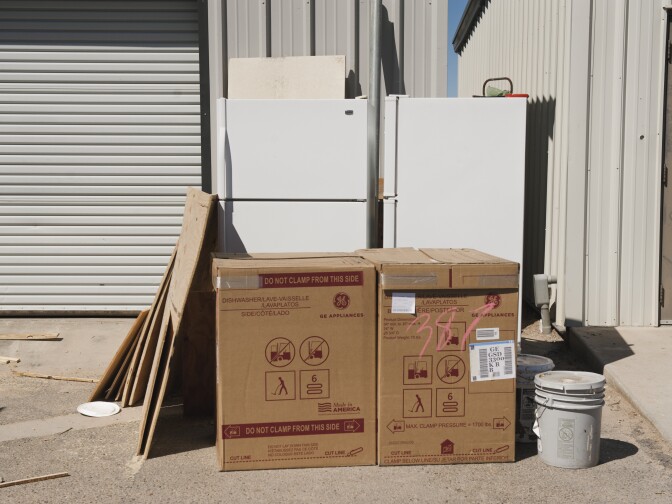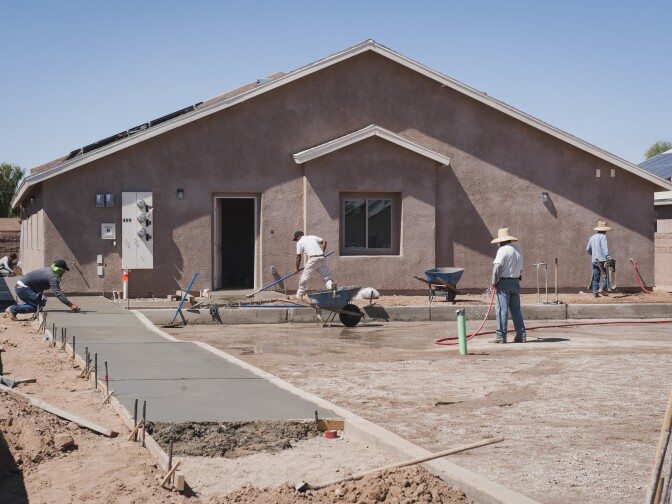This story is free to read because readers choose to support LAist. If you find value in independent local reporting, make a donation to power our newsroom today.
This archival content was originally written for and published on KPCC.org. Keep in mind that links and images may no longer work — and references may be outdated.
Land, but no homes: How to fix the housing problem on tribal lands
The Quechan Tribe has spent at least hundreds of years in the southeast corner of California, where the Fort Yuma Indian Reservation now sits.
The reservation is a cluster of sand dunes, agricultural land, a couple little neighborhoods of single family homes, and then scattered homes, most built decades ago, some surrounded by trailers.
The tribe has over 3,000 members, but the majority live not on the reservation, but across the border in Yuma, Arizona. But not by choice, said Cliff O'Neill, director of the Quechan Housing Authority.
"The main issue is availability," he said. "There just isn’t available housing here.”
For a member of the Quechan tribe, moving home can be difficult. Land can't be bought or sold, only inherited. Some people drag trailers or mobile homes onto a relative's land. The only other option is O'Neill's waitlist, currently over 300 families long, for a spot in one of the subdivisions the housing authority has managed to build over the course of decades.
"With our funds, we're only able to open one unit a year," O'Neill said. "That just doesn't cut it."
One of the biggest issues, he said, is that the Low-Income Housing Tax Credit program – the country's largest program for building and preserving affordable rental housing – was virtually inaccessible to California's Native American tribes until a few years ago.
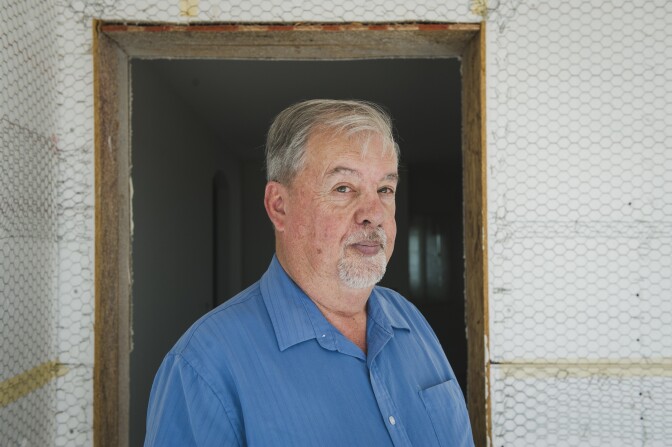
"The way that affordable housing is built most effectively across the United States is by using the Low-Income Housing Tax Credit program," said Elizabeth Glynn, CEO of Travois, a consulting firm that facilitates housing and economic development on reservations across the country. "California, unfortunately, has made it nearly impossible to access those credits."
The 9 percent and 4 percent tax credits, which developers sell to private companies, have generally provided a chunk of financing to any income-restricted, multi-unit project that's gone up in the past few decades. In total, about $8 billion in tax credits are dished out each year, over $2 billion of which goes to California.
But from 1986, when the program started, through 2013, not a single one of those credits went towards building housing on any of the state's 100 reservations and rancherias.
Tribes simply could not compete in the application process, Glynn said, which tends to favor developments that are near transit, community resources, and are easier to complete.
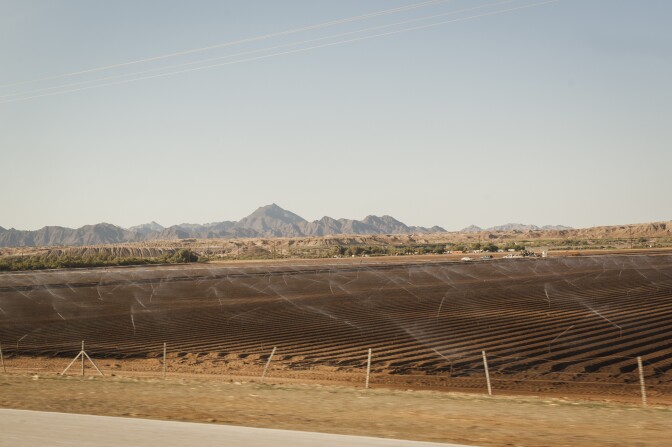
"Instead of being able to build a multi-unit apartment building, they have to start by putting in sewer systems, sidewalks, roads," she said.
As a result, a tribe like the Quechan might have a good amount of land on the reservation, but members of the tribe can't actually live there.
That is now changing. A few years ago, California changed the way it allocates the state's collection of tax credits, setting aside a pool just for construction on native lands. Since then, three reservations have been awarded credits for big developments, including the Fort Yuma Indian Reservation,which is building 44 new units of single family homes and duplexes.
Now, instead of one unit a year, they're opening one each day.
"There’s just no other way we could have done that," said O'Neill. "To finance that level of construction is just way beyond our means."

Legislation now making its way through Congress would force all states to consider the needs of tribal lands when allocating low-income housing tax credits. The proposed change is a piece of a larger set of reform bills taking shape as Congress gears up to tackle a potential tax code overhaul. And the proposed changes would benefit low-income renters all over California.
U.S. Senator Maria Cantwell (D-WA) and Senate Finance Committee Chairman Orrin Hatch (R-UT) have introduced S 548, which would reform the tax credit as well as expand it by 50 percent over five years. House bill HR 1661, introduced by Rep. Patrick Tiberi (R-OH) and Rep. Richard Neal (D-MA), is largely similar, but does not call for expansion.
The change in California has made all the difference to those who work on housing on Fort Yuma Indian Reservation. The parking lot behind O'Neill's office is stacked with refrigerators. The few roads on the reservation are clogged with bulldozers.. And the sounds of construction fill the little subdivision where Celisse Cornejo's two-bedroom home sits.
"It's been crazy," she said. Though the sound doesn't bother her – Cornejo is hoping one of the new units will go to her family.
Cornejo crowded into her mother's house before a spot opened up for her in the subdivision. But since then, her family has grown.. Now, she's squished into a two-bedroom house with her husband, three kids, and a nephew.
"The kids share a bunkbed," she said. "They can't even have their Christmas presents from last year, they're in storage."
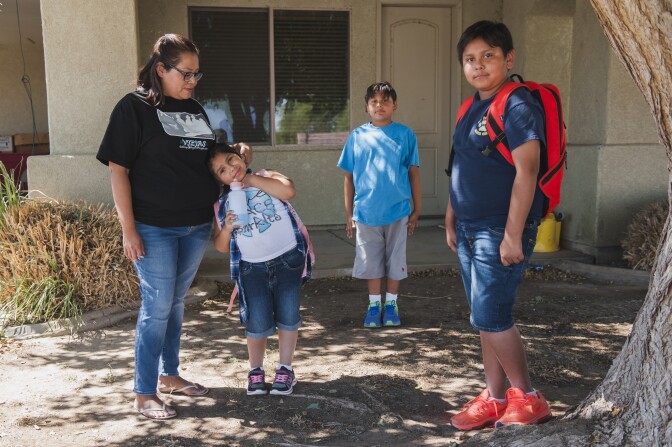
Her little girl, Rubi, usually ends up sleeping on the floor. The kids can't agree on what to put on their bedroom wall, so it's blank.
"I wish she could have her own bedroom, especially because she's getting older," Cornejo said.
She also hopes the tribe can keep building, so her kids will be able to live on the reservation when they grow up.
"It's where I'm from, it's who I am," she said. "The community, the people, it's your family."





